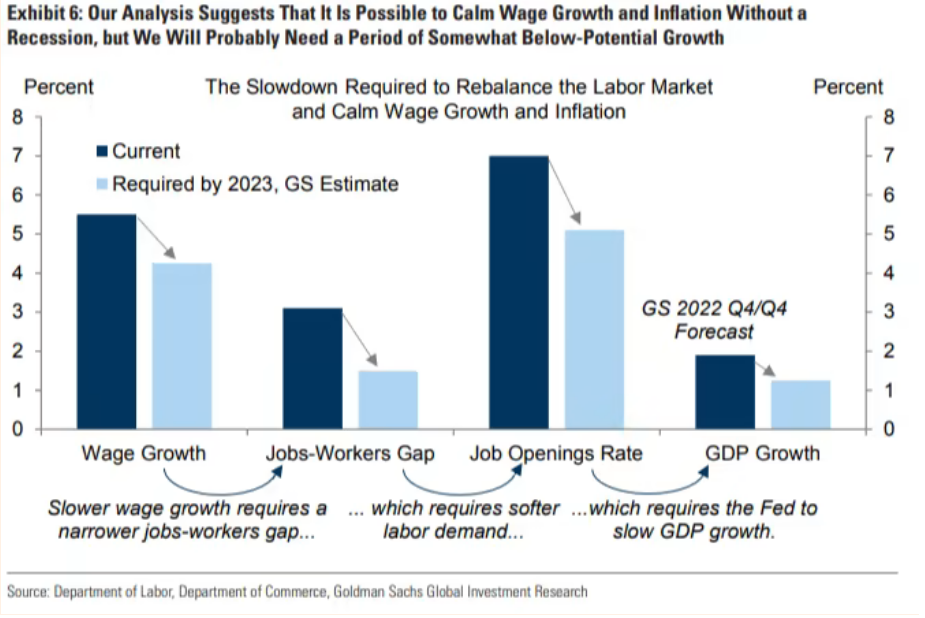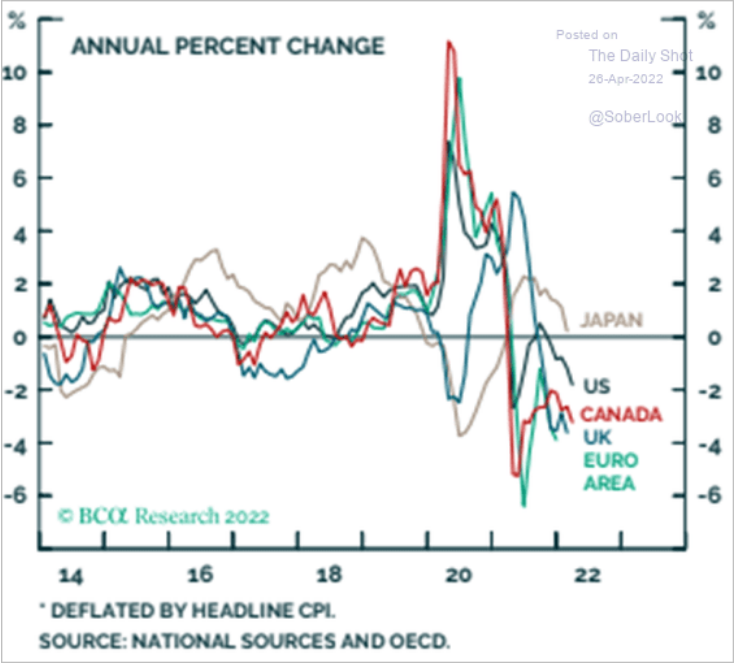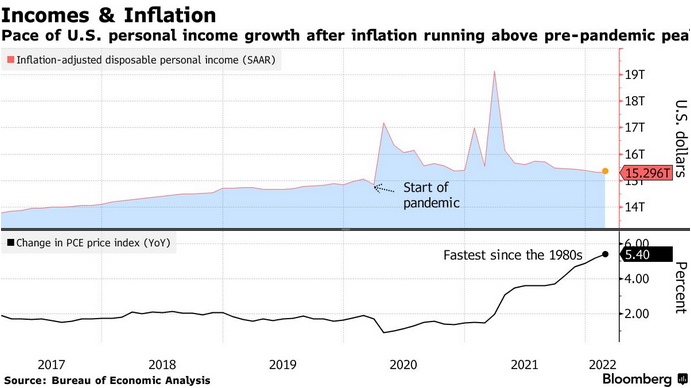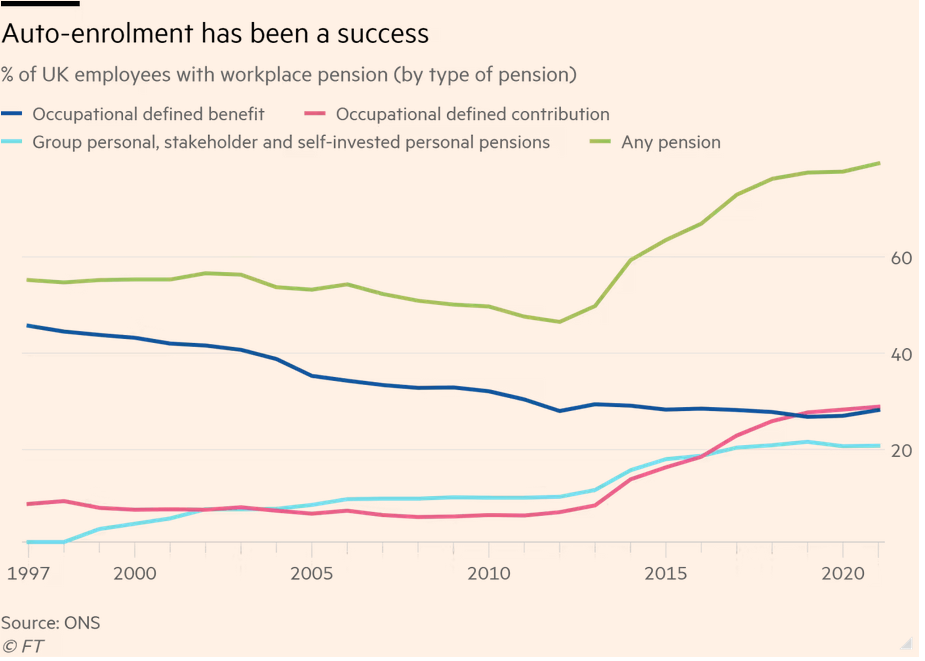April 26, 2022
Airline industry wants you to ignore that you might be in an unsafe aircraft
Aircraft leasing companies have launched a multinational effort to persuade safety authorities to allow grounded planes that were returned from Russia without full maintenance records back into commercial service.
- Aircraft brought back from Russia do not have maintenance records for the whole time they were there.
- About 500 aircraft ($10 billion worth), $4bn from Irish companies.
- Insurance companies are stuck in the middle facing both high costs for replacing lost plane, but also aware of the risks of insuring broken airplanes (to human life).
More serious wage suppression
- As predicted at the start of this price increase ride, Capital is now very worried wages are going up as productivity drags and labour markets "tighten".
- In Keynesian economics, wages – not profit subsidies – make inflation "stick" to higher levels. The math on this doesn't work, but that never stopped them saying it.
- The reality is that they are worried about wages because wages are eating into their "natural" profit rates. Productivity growth is lagging the price of inputs as investment becomes more expensive.
- The very basic terms for it are "class" and "war", but capital is calling it "avoiding a recession".
- Here is the example of what they think should happen to re-establish the extreme imbalance of Capital over labour:

- Basically, the monetarists story is that as we put breaks on growth (in wages) requires a slow-down in the economy while we wait for more people to come into the labour force.
- Slowing the economic growth of the whole economy might hurt capital a little, but it will hurt labour more. So, that seems like the right thing to do, right?
- Ridiculous. But, they may already be getting their way. Here is real wage growth (adjusted for inflation):

But, they are still running above pre-pandemic levels:

Automatic enrollment in the UK for pension plans (also called "having a pension plan") works
- Defined contribution data in the UK show that when people are "forced to pay into" a pension plan (unless you opt-out), they pay into a pension plan. Shocking, I know.
-
From the FT
The policy has been most transformational for people who work in the lowest-paid and least secure sectors. Participation rates increased from 5 per cent to 51 per cent between 2012 and 2021 in accommodation and food services, and from 14 to 64 per cent in admin and support services.
- Now, if these were defined benefit plans, people would actually have secure pensions instead of the loose promise of a pension plan, but it is better than "no pension plan".
- We set such low bars for retirement security.
-
Unfortunately, the way that these pension schemes work is by stealing money from workers and putting it to work for Capital for the promise that if there is money left over from abusing that money, you can have it back later.
- Basically, a pension where workers sacrifice their pay to a pension fund is wage theft unless there is a growth in the DC plan that is higher than the estimated wage growth that would happen in the meantime.
- Said another way: wages have to increase proportionally to the investment (- growth) in the pension fund for this to be a good deal for workers.
- The alternative plan is to extract surplus value directly from employers through a tax and put it away for workers. This kind of state pension (especially if it is a DB plan) is the better alternative.

- The only thing that is interesting about the current mess is that it is the largest leveraged buy-out of a publicly traded company.
To facilitate the deal he is putting up $21bn of equity commitments and $12.5bn of loans against his own Tesla stock. All for a slow growing 16 year old company that reported a net loss of $221mn last year.
- This, in Wall Street terms, equals $44bn to buy the company
- It also means that it will be a very expensive company that doesn't do much.
Women and the pandemic
- Interesting paper
- Tries to say that the education level of workers is a better predictor of labour market participation than gender during the pandemic. That is, lower-waged more front-facing work was more impacted by the pandemic than other work. Which is only obvious if you are not a neoclassical economist.
- The other result is that women were affected more than men by the disruption in the economy, labour market, and shifting sands of the social state.
- For women who work: managers who force women back to the office are decidedly anti-feminist.
“The real story of women during the pandemic concerns the fact that employed women who were educating their children, and working adult daughters who were caring for their parents, were stressed because they were in the labor force, not because they left,” said Goldin.